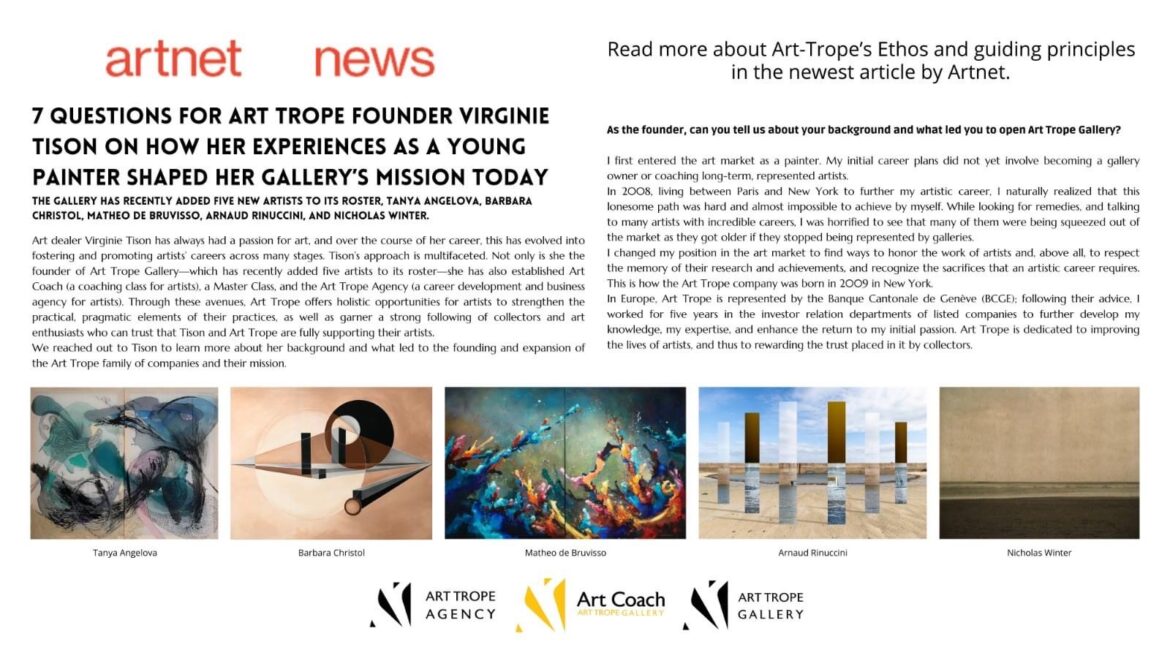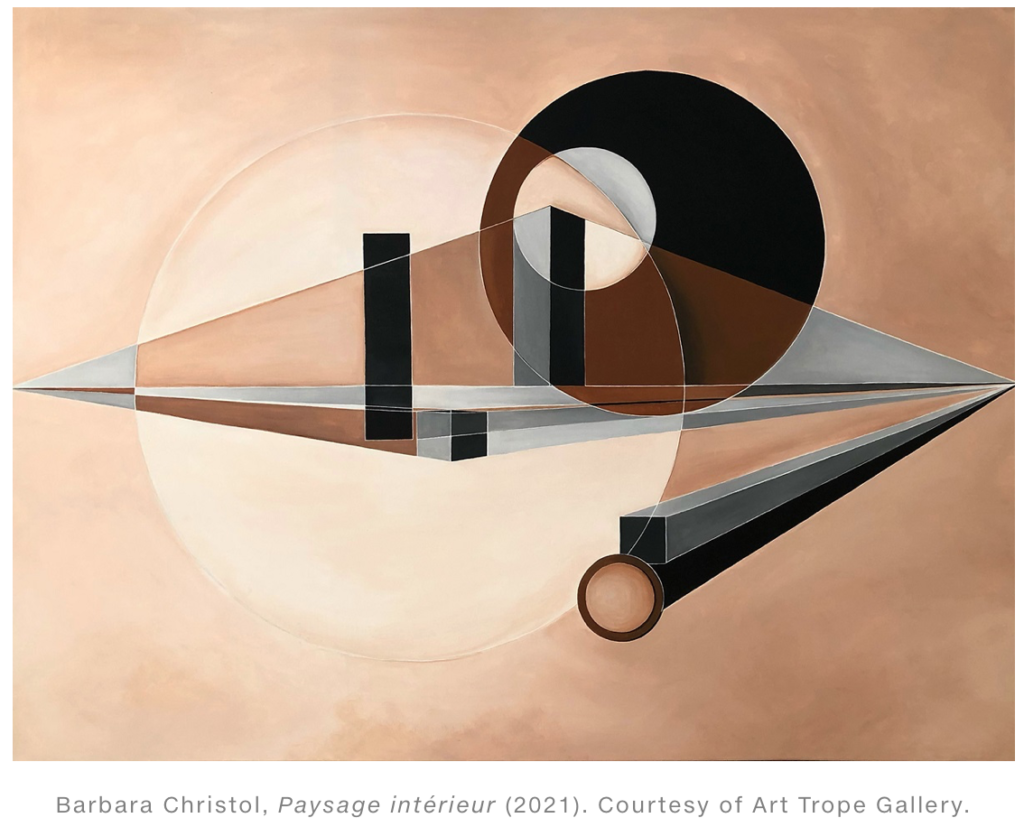7 Questions for Art Trope Founder Virginie Tison on How Her Experiences as a Young Painter Shaped Her Gallery’s Mission Today
The gallery has recently added five new artists to its roster, Tanya Angelova, Barbara Christol, Matheo de Bruvisso, Arnaud Rinuccini, and Nicholas Winter.
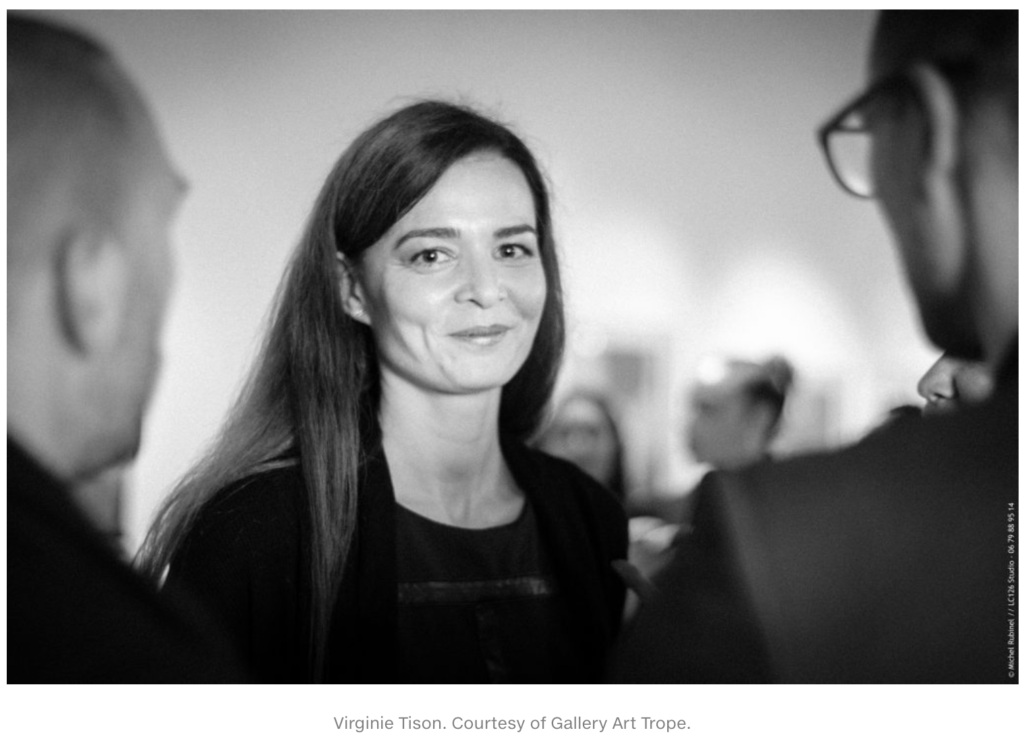
Art dealer Virginie Tison has always had a passion for art, and over the course of her career, this has evolved into fostering and promoting artists’ careers across many stages. Tison’s approach is multifaceted. Not only is she the founder of Art Trope Gallery—which has recently added five artists to its roster—she has also established Art Coach (a coaching class for artists), a Master Class, and the Art Trope Agency (a career development and business agency for artists). Through these avenues, Art Trope offers holistic opportunities for artists to strengthen the practical, pragmatic elements of their practices, as well as garner a strong following of collectors and art enthusiasts who can trust that Tison and Art Trope are fully supporting their artists.
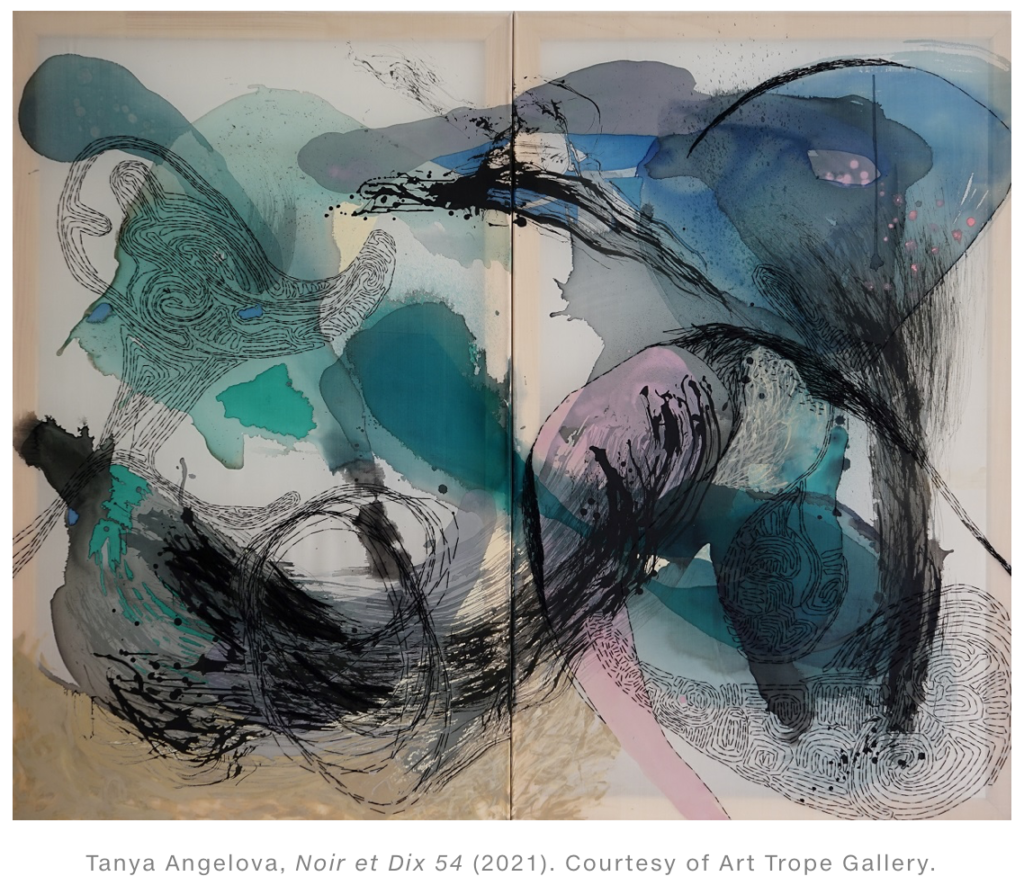
As the founder, can you tell us about your background and what led you to open Art Trope Gallery?
In 2008, living between Paris and New York to further my artistic career, I naturally realized that this lonesome path was hard and almost impossible to achieve by myself. While looking for remedies, and talking to many artists with incredible careers, I was horrified to see that many of them were being squeezed out of the market as they got older if they stopped being represented by galleries.
I changed my position in the art market to find ways to honor the work of artists and, above all, to respect the memory of their research and achievements, and recognize the sacrifices that an artistic career requires. This is how the Art Trope company was born in 2009 in New York.
In Europe, Art Trope is represented by the Banque Cantonale de Genève (BCGE); following their advice, I worked for five years in the investor relation departments of listed companies to further develop my knowledge, my expertise, and enhance the return to my initial passion. Art Trope is dedicated to improving the lives of artists, and thus to rewarding the trust placed in it by collectors.
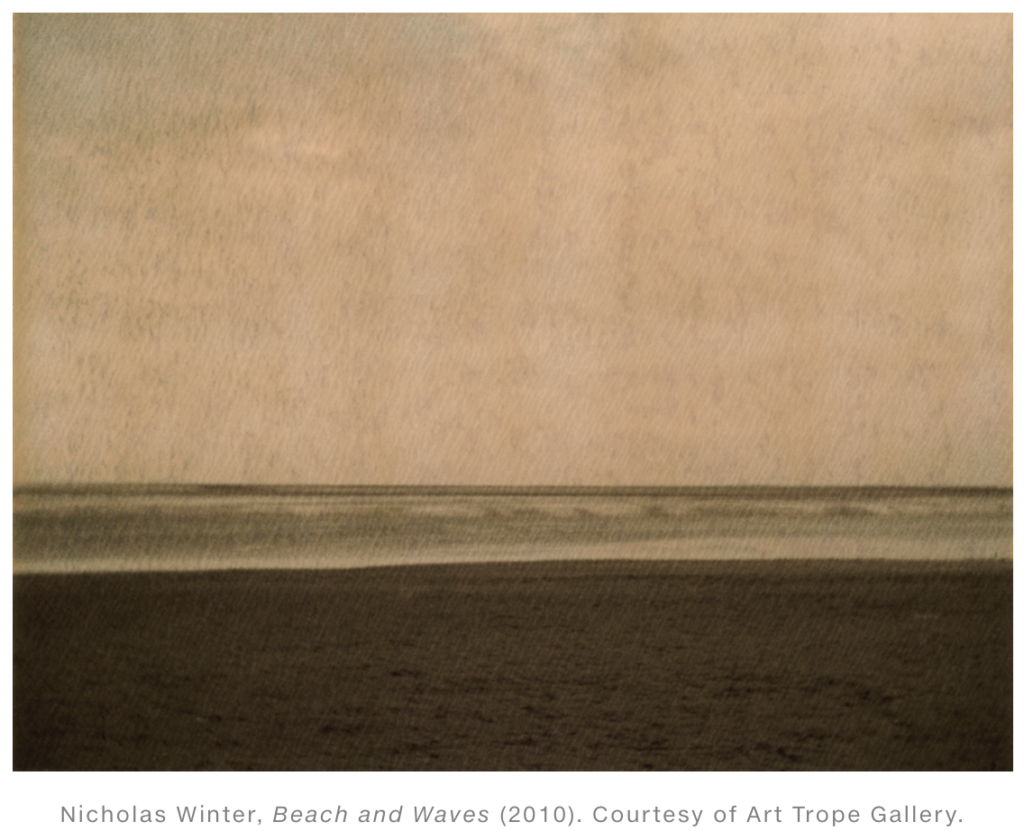
How would you describe the ethos or guiding principles of the gallery? How is this reflected in the artists and exhibitions you show?
I regard my partnership with the artists we represent as a long-term, mutually beneficial professional engagement—growing as we go. It’s important to be clear and help them find their way through the career development process, not just as a gallery producing exhibitions.
I have established collaborative processes over the years that keep improving. The artists have their say as well. Our agreement is based on a series of offers, which they can accept or reject as they wish. For the exhibitions, I listen to their feedback and I brainstorm the theme, the selection of works, and the scenography.
However, to go beyond what Art Trope Gallery can provide, currently we are developing Art Trope Agency with the same artists, which will be focused on business and financial development.
Since founding the gallery, what are some of the biggest lessons you’ve learned as a gallerist?
I have learned a lot in 15 years. As you can imagine, the path to creating Art Trope Gallery was sinusoidal—full of ups and downs. The learning process was more than instructive and my main takeaway has been not to get stuck in “hoping for,” but to stay focused on concrete facts; strategies must therefore always be swift to adapt or shift.
At first, I only promoted the artists, but now I realize that there is a larger equation and that galleries are, for instance, turning into wall rental companies.
I will never change Art Trope’s DNA, however, because it is part of my life’s mission and it is clear that failures make us better.
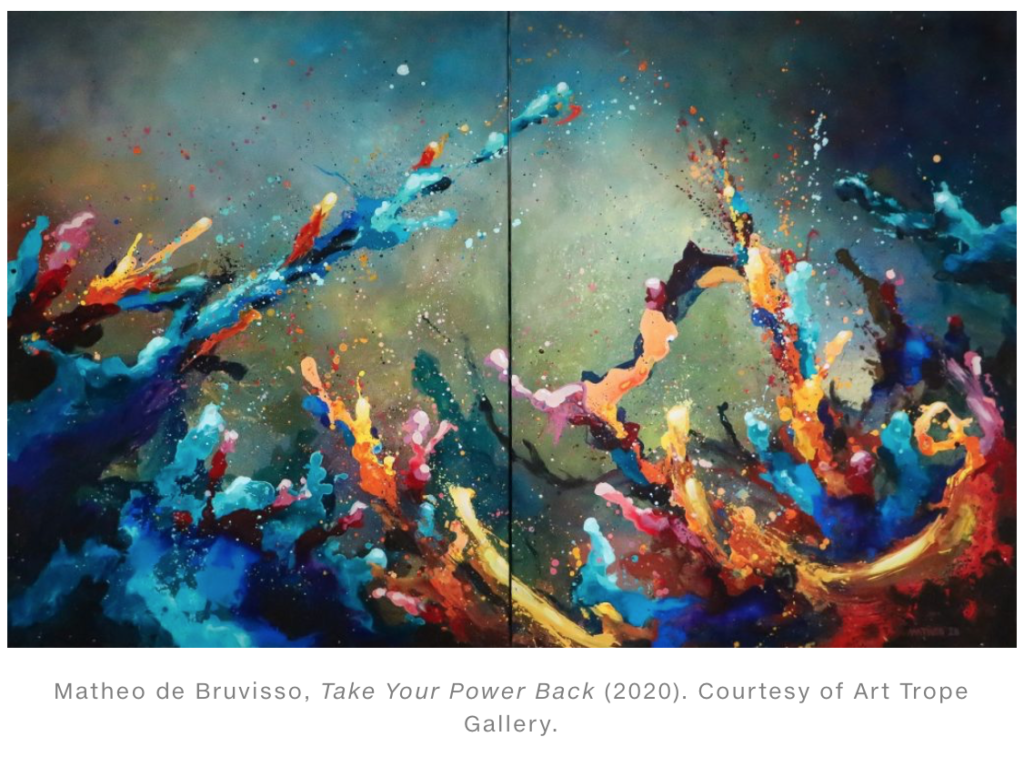
With the art market having undergone many changes over the past few years, have you noticed any trends or developments that you find particularly exciting or interesting?
The major change for all those involved in the market is the introduction of digital tools, as it’s almost impossible to work and grow in the art market today if you don’t know how to use them.
With my background in financial communications and a degree in digital communications, I have tailored my skills to serve arts promotion.
I have developed the Master Class as part of my Art Coach activity because I give the same advice to artists over and over again. I also train interns and young graduates in various art professions. I must confess that I also enjoy passing on my knowledge in my job. Some art world professionals also come to me for training.
What do you think the role of art or the artist is in society today?
The impact of artistic insight is of vital importance to our modern society. Art enables us to open our minds and our senses through the visions that only the creators can pass on to us. I believe that we will make great progress, in terms of aesthetics as well as humankind. I often say art is first a journey connecting our senses to our emotions but also connecting us to a world of opportunities.
When asked what I do for a living, I frequently reply that I live in an alternate universe where senses and cultures meet in a cross-cultural and fruitful manner, and open new perspectives that are either realistic, unreal, or completely utopic.
Artistic understanding is wide since it is based on our paradigms, our sensitivities, but also our life experiences.
What’s next for the gallery? Is there any news, either related to the gallery or one of the gallery’s artists, that you can share with us?
We are always looking for new artists to represent to complete the gallery’s portfolio. We opened the year 2023 with five new artists: Tanya Angelova, Barbara Christol, Matheo de Bruvisso, Arnaud Rinuccini, and Nicholas Winter.
If you were not a gallerist, what would you be?
I’ve always wanted to work for companies with a high level of social engagement. This has always been my professional ethos.
To date, my expertise has been in the art market. Over the years, in developing the talents of each of my collaborators and/or trainees, I have built a positive management style. I also discovered a passion for enhancing others’ professional skills. These passions have given way to my personalized coaching course and a Master Class aimed at professionalizing artists over the course of a year.
In my opinion, many artists do not have an adequate understanding of the issues involved in developing their careers. Given the harsh economic realities of the art market, and the situation of most artists worldwide, our work with artists is structured in three steps:
- Art Coach: Training Business programs for artists.
- Art Trope Gallery: “A gallery like no other,” with a long-term representation of its artists.
- Art Trope Agency: A career development and business agency for artists.
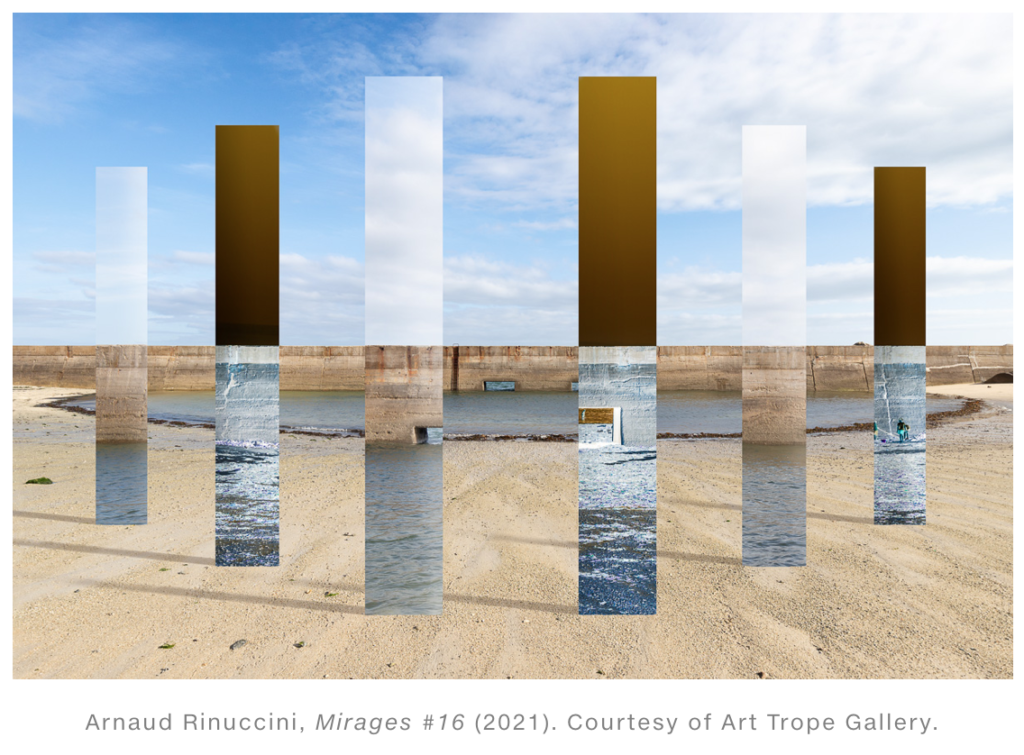
Click to Read the article on Artnet

